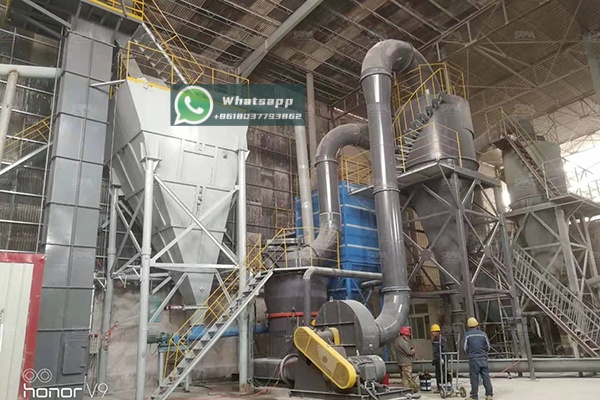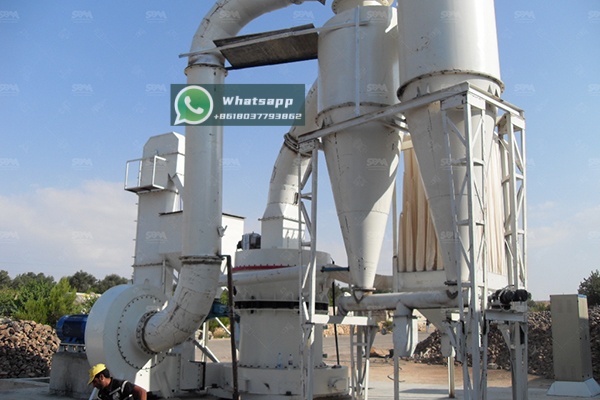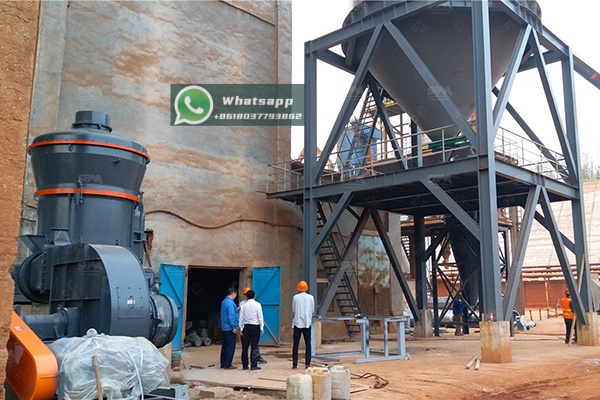The epoxy and resin flooring industry has experienced remarkable growth over the past decade, driven by increasing demand for durable, aesthetically pleasing, and functional flooring solutions across commercial, industrial, and residential sectors. At the heart of these advanced flooring systems lie high-performance fillers – mineral additives that significantly enhance mechanical properties, chemical resistance, and overall performance. These fillers, when properly processed to optimal particle size and distribution, transform basic resin systems into sophisticated industrial flooring solutions capable of withstanding extreme conditions.
Fillers serve multiple critical functions in epoxy and resin flooring formulations. They improve mechanical strength, reduce shrinkage during curing, enhance thermal stability, provide anti-slip properties, and significantly reduce material costs without compromising performance. The effectiveness of these fillers is directly dependent on their particle size distribution, morphology, and purity – characteristics that are precisely controlled through advanced grinding technologies.

The particle size distribution of fillers is perhaps the most critical parameter affecting flooring performance. A well-graded distribution, where smaller particles fill the voids between larger particles, creates a denser packing structure within the resin matrix. This optimal packing reduces resin demand, minimizes shrinkage, and enhances mechanical properties. Fillers with controlled particle size distributions between 1-100 microns typically provide the best balance of properties for most flooring applications.
Ultra-fine fillers, particularly those below 10 microns, play a special role in modern flooring formulations. These fine particles significantly increase the specific surface area of the filler system, leading to improved reinforcement through enhanced particle-matrix interaction. However, processing these ultra-fine materials requires specialized grinding equipment capable of achieving consistent particle size reduction without contamination or excessive heat generation.
The epoxy and resin flooring industry utilizes a diverse range of mineral fillers, each offering unique benefits:
The transformation of raw mineral materials into high-performance fillers requires sophisticated grinding technology. Different minerals present unique challenges in processing – from the extreme hardness of quartz to the thermal sensitivity of ATH. Manufacturers must select grinding equipment that can handle these diverse materials while maintaining precise control over particle size distribution, contamination levels, and production efficiency.
Shanghai Zenith Machinery Co., Ltd., an excellent manufacturer of ore grinding equipment in China, has made significant achievements in the field of ultra-fine powder grinding. Their specialized research, development, and production of industrial powder grinding equipment has positioned them as a key technology provider for the filler production industry. Their comprehensive product range addresses the varied needs of filler manufacturers serving the epoxy and resin flooring market.

For manufacturers requiring the finest particle sizes and tightest distribution control, the LUM Ultrafine Vertical Mill represents cutting-edge technology. This system integrates grinding, drying, classifying, and transportation in a compact footprint, making it ideal for producing fillers with high content of end-fines. The intelligent control system ensures consistent product quality while simplifying maintenance operations.
| Model | Main Machine Power (kW) | Capacity (t/h) | Size Distribution D97 (μm) |
|---|---|---|---|
| LUM1525 | 220-250 | 1.6-11.5 | 5-30 |
| LUM1632 | 280-315 | 2.0-13.5 | 5-30 |
| LUM1836 | 355-400 | 2.3-15 | 5-30 |
The LUM series is particularly well-suited for producing specialty fillers where ultra-fine particle sizes (D97 down to 5μm) are required to achieve specific performance characteristics in high-end epoxy flooring systems.
For broader particle size distributions and higher volume production, the MTW Trapezium Grinding Mill offers an excellent balance of efficiency, reliability, and product quality. With multiple patents covering its innovative design, this mill features compact structure, long service life, and eco-friendly operation. It can process materials with maximum input size of 50mm and produce final products as fine as 0.038mm (38μm).
| Model | Max. Feed Size (mm) | Final Size (mm) | Capacity (t/h) | Main Motor (kW) |
|---|---|---|---|---|
| MTW110 | <30 | 1.6-0.045 | 3-9 | 55 |
| MTW138Z | <35 | 1.6-0.045 | 6-17 | 90 |
| MTW175G | <40 | 1.6-0.045 | 9.5-25 | 160 |
| MTW215G | <50 | 1.6-0.045 | 15-45 | 280 |
The MTW series provides the versatility needed to process various filler materials, from quartz and calcium carbonate to specialized minerals, making it an ideal workhorse for filler production facilities serving diverse market needs.
Industrial environments demand flooring systems that can withstand extreme conditions – heavy traffic, impact loads, chemical exposure, and thermal cycling. Fillers for these applications typically emphasize hardness, chemical resistance, and dimensional stability. Quartz-based fillers ground to specific particle size distributions provide the necessary abrasion resistance, while carefully selected mineral blends can enhance chemical resistance to oils, solvents, and cleaning agents.
Commercial flooring balances performance with aesthetics. Here, fillers contribute to color consistency, surface smoothness, and light reflection properties. Calcium carbonate fillers, with their bright white appearance and excellent processing characteristics, are particularly valuable in these applications. The ability to achieve consistent particle size distribution ensures uniform appearance and reliable performance across large floor areas.
Certain environments present unique challenges that require specialized filler solutions. Food processing facilities need non-porous, easily cleanable surfaces with specific chemical resistance. Healthcare settings may require antimicrobial properties or static control. Laboratories might need non-sparking or conductive flooring. Each of these specialized applications benefits from carefully engineered filler systems processed to exacting specifications.

The epoxy and resin flooring industry continues to evolve, driven by technological advancements and changing market demands. Several key trends are shaping the future of filler technology:
The production of high-performance fillers for the epoxy and resin flooring industry represents a sophisticated technological challenge that demands precise control over multiple parameters. The selection of appropriate grinding equipment is not merely an operational decision but a strategic one that directly impacts product performance, manufacturing efficiency, and competitive positioning.
Shanghai Zenith Machinery’s comprehensive range of grinding solutions, from the ultra-fine capabilities of the LUM series to the high-volume production of the MTW trapezium mills, provides filler manufacturers with the technological tools needed to meet evolving market demands. As the flooring industry continues to advance toward higher performance standards and more specialized applications, the role of precisely engineered fillers – and the grinding technology that produces them – will only grow in importance.
By partnering with technology leaders like Shanghai Zenith Machinery, filler producers can ensure they have the capabilities needed to develop next-generation products that will define the future of epoxy and resin flooring systems across global markets.